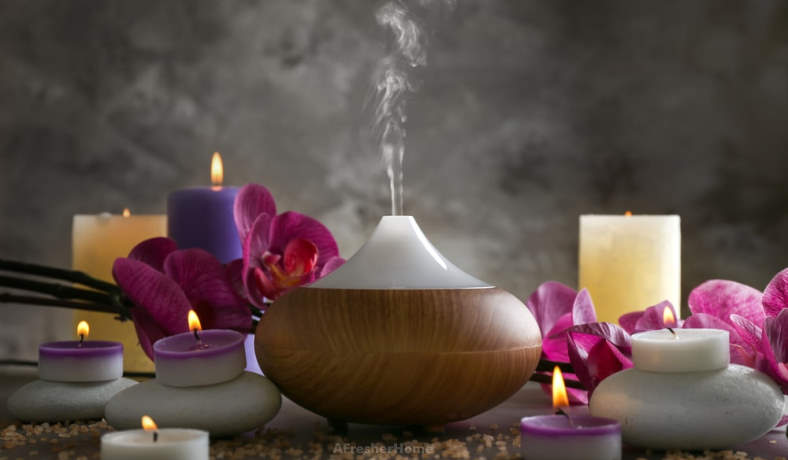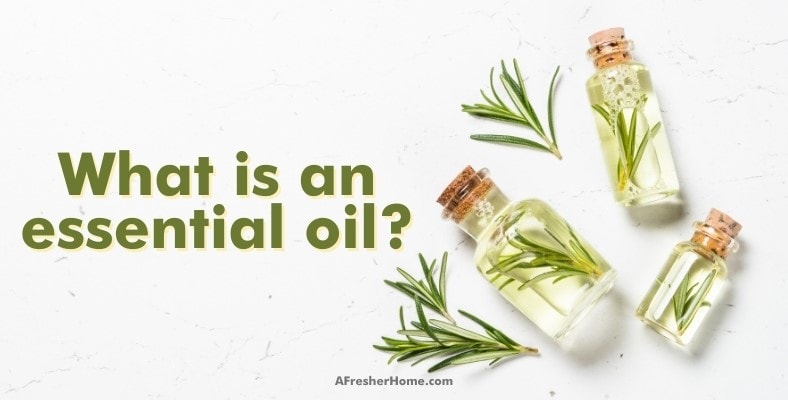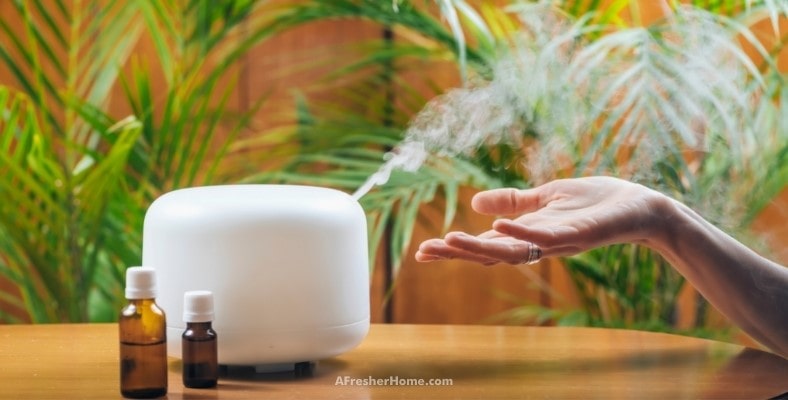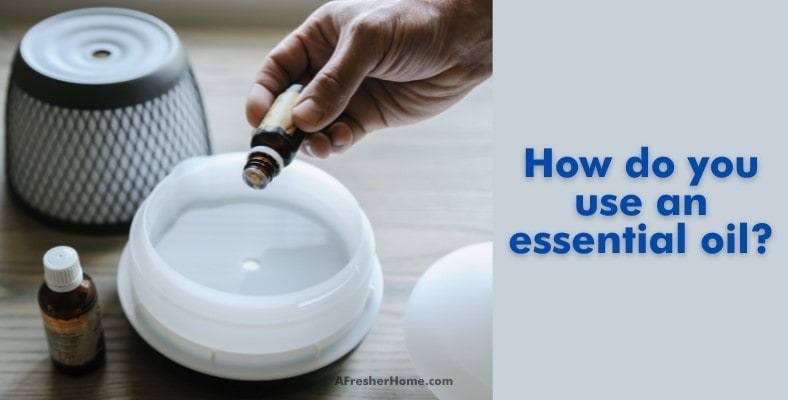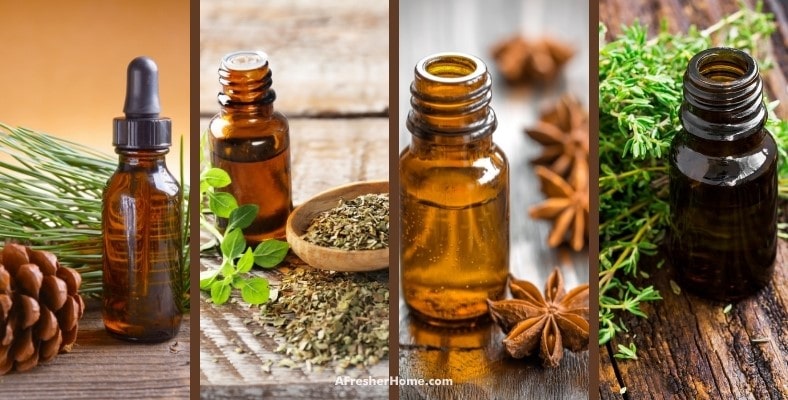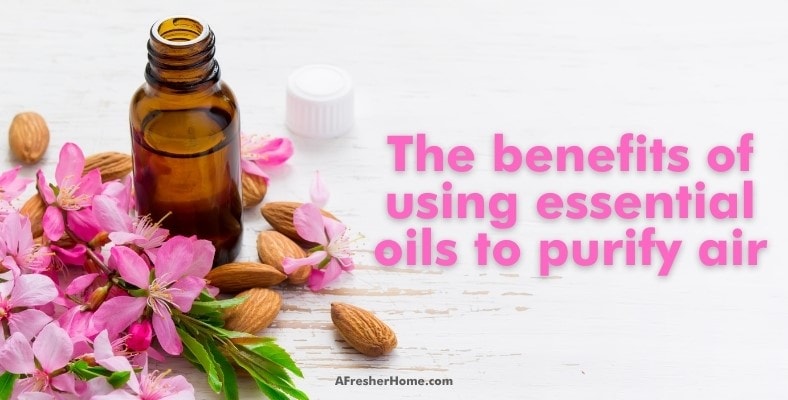Essential oils do have a lot of benefits – that’s true. But can they purify the air as well?
We’ll look at the benefits of essential oils when it comes to air quality and share quite a bit of other helpful info about them as well. Read on to learn more!
Contents
What is an Essential Oil?
Essential oil is basically the essence of a plant and is found in the seeds, bark, stems, roots, flowers, and other parts of the plant. The plant’s natural liquid is extracted by a process called distillation and the result is a product that’s able to easily evaporate at room temperature (also called hydrophobic).
Another place where you might find an essential oil is the zest from a citrus fruit which is a fragrant oil.
The aroma gives plants their own distinctive fragrance and it works to protect the plant from problems like mold and insects. Essential oils are something that have been used for a long time in beauty treatments, health care practices, and food preparation.
Do Essential Oils Really Purify Air?
As well as smelling amazing, there are some essential oils that have strong air purification properties. However, be aware that doesn’t apply to all types of essential oils.
One of the reasons that these oils are in a plant is to protect it from mold so they’re great for cleansing the air. However, they cannot replace the air cleaning power of a good air purifier which is needed for certain air quality problems.
Essential oils with good air qualities
Some of the oils that can be used include:
- Cinnamon
- Tea tree
- Oregano
- Clove
- Thyme
- Grapefruit extract
- Rosemary
These can all be diffused into the air to help to cleanse it.
Essential oils vs using an air purifier
There are often lots of airborne contaminants that are present in the air you breathe inside your home that can lead to illness such as viruses, fungi, bacteria, and toxic particulates.
Many people are turning to essential oil diffusers to help to get rid of these air contaminants. However, you need to be aware of the fact that you can’t simply use any essential oils to help with this problem, as only certain ones are going to work.
However, for many common problems such as dust and pet dander, you’ll still need a good quality HEPA-type air purifier. That’s because a filter-based purifier removes the contaminants from the air, trapping them permanently in its filter.
This is what a diffuser using oils cannot do – it can help with some things like germs and air freshness, but not remove particulates.
Can essential oils prevent mold?
However, you should know that just because it can help to rid mold inside of a plant doesn’t mean that it can do the same inside your home.
Essential oils are not able to prevent mold growth in the home.
How Do You Use An Essential Oil?
To get the best results from essential oils, you will need to:
- Use aromatically through diffusion (using a diffuser or other device)
- Applying them to the skin after diluting them with a carrier oil
- Internally through ingestion
All of these approaches will work well to support the body.
However, research is now suggesting that we can get even more benefits from diffusing oils than was previously known. Although, the body is still able to benefit from the aroma even when it is not being taken in through the nose.
What to know about essential oil use for your air
You need to be aware that excessive essential oil use can actually contaminate your air rather than cleanse it. Excessive exposure to essential oils in the air can lead to a variety of respiratory issues.
You may also encounter skin sensitization and more.
The people that are the most at risk are children, and pets are also susceptible to the effects of an airborne overdose.
When you’re using essential oils in the air you should only ever use them in small amounts and for shorter periods of time.
Less really is more when it comes to the use of essential oils. Each oil will have a dosage, and exceeding this dosage can quickly become dangerous.
Which Essential Oils Can Improve Air Quality?
Some of the essential oils that are known to improve air quality can include:
- Pine
- Clove
- Lavender
- Eucalyptus
- Tea tree
- Oregano
- Thyme
- Lemon
- Anise.
They can help to reduce the microbes that are present in the air.
Some studies have shown that lavender, eucalyptus, and tea tree are only effective in the first 30 to 60 minutes of use. There are some essential oils that are not safe for use around pets and small children, so you will need to do your research before using any of these oils in your home.
It’s also not recommended to diffuse essential oils if you live with anybody that suffers from asthma or other respiratory problems.
The Benefits of Using Essential Oils to Purify Air
There are lots of benefits of using essential oils, but you will need to be careful when using them. One of these benefits is that they can improve moods and treat psychological issues.
They can also be used to help with modern medical treatments.
Essential oils can also be used to treat toxic air in certain circumstances. Each different oil will have different properties and scents, and they each provide different benefits.
These are just some of the reasons why essential oils are quickly gaining popularity, and they play a big role in traditional and alternative medicine.
You can use different essential oils for certain purposes, including purifying the air in your home, but you should always be careful to monitor how much you are using and how often you are using it.
